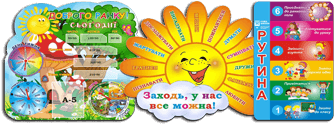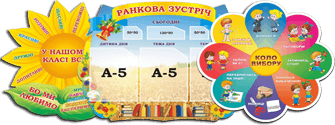Конспект уроку англійської мови в 5 класі.
Автор: вчитель англійської мови Кичук Лариса Вікторівна
Позитивна атмосфера на уроці, комунікативні вправи, різнорівневі тестові завдання для перевірки засвоєної лексики допоможуть вашим учням відчути, що тема “Пори року та погода” справді може бути цікавою і захопливою
Тема: Пори року і погода
Мета: Повторити та активізувати ЛО теми в усному мовленні учнів, формувати навички усного монологічного та діалогічного мовлення з опорою на малюнок, практикувати у сприйнятті інформації на слух та навчати використовувати її під час виконання післятекстових завдань, навчати погоджуватись та не погоджуватись зі співрозмовником, порівнювати погоду різних пір року ,розвивати пам’ять, увагу та мислення учнів, уміння систематизувати набуті знання
Обладнання: підручник, текст вірша “Autumn”, текст для аудіювання “The Best Time for Apples”, картки для роботи у парах за текстом для аудіювання, малюнки для «Прогнозу погоди», тематичні малюнки «Пори року», картки для перевірки засвоєння лексики учнями, картки для самооцінювання
Хід уроку
І.Greeting
Good morning, dear children. Glad to see you!
II.Aiming
Today we’ ll revise all that we know about the seasons, the weather in different seasons and why we like every season. You will listen to the text, write a short test and play games.
III.Warming up
Listen to a poem and guess the season
Yellow, red and green and brown
See the little leaves fall down.
Dancing, dancing in a breeze
Falling, falling from the trees.
-What season is described here?
-Do you like autumn? Why?
Listen to the poem again and then you’ ll read it yourselves.
Reflection: At our lesson I ask you to paint a stair every time when you do the task correctly
IV.Checking homework
-You had to revise the words on the topic. We shall make a casting of the best weather forecaster
(pupils take a picture and describe the weather on it)
-What season is it now? What are winter months? What is the weather like in winter? Do you like it? Why? You had to learn a poem about winter/Let’s listen to some of you.
-3-4 pupils recite a poem about winter
Come to the garden and play in the snow.
Make a white snowman and help him to grow.
“What a nice snowman” children all say.
“What a fine game for a cold winter day”.
-What is this poem about? (some pupils read their translation of the poem in Ukrainian)
V.Physical warm up
Step! Step! Clap! Clap! Step! Step! Clap! Clap!
Turn yourself around and then you clap, clap, clap!
Bend left. Clap, clap! Bend right, clap, clap!
Turn yourself around and then you clap, clap, clap!
Hands up.Clap, clap! Hands down. Clap, clap!
Turn yourself around and then you clap, clap, clap!
VI.Writing
You know many words on the topic. Now we’ll write a test
I.Look at the blackboard. There is a card with 12 word. I’ll read them in Ukrainian. You have to write the numbers of these words in English.
| 1.snowy | 7.rollerblade |
| 2.cloudy | 8.sunbath |
| 3.frosty | 9.sunny |
| 4.cold | 10.go fishing |
| 5.catch butterflies | 11.storm |
| 6.foggy | 12.hot |
Загоряти, морозний, сніжний, сонячний, буревій, жарко, кататися на роликах, туманно, хмарно, рибалити, холодно, ловити метеликів
8, 3, 1, 9, 11, 12, 7, 6, 2, 10, 4, 5
II.Read these words again and divide them into two groups
Weather Entertainments
1, 2,3, 4,6, 8, 9 11, 12 5, 8 , 10
III.Write a sentence with the words from the second group
VII.Listening
What season comes after summer? How do you think why do many people like autumn?
Listen to the text and you will be able to answer the question?
The Best Time for Apples
It was a lesson at a small school. The lesson was about the seasons. There are 4 seasons in the year, the teacher said. They are spring, summer, autumn, winter. In spring it is warm and the trees are green. In summer it is hot and there are many flowers in the parks and gardens. In winter it is cold and it usually snows. Here he stopped and looked at one boy. “Stop talking, Bob!”he said. “Now answer my question “When is the best time for apples?” The boy said “It is when the farmer is not at home and there is no dog in the garden”
After-listening tasks
1)Agree/ disagree with me
-It was a lesson in a big school.
-The lesson was about the seasons.
-There are 3 seasons in a year.
-There are many apples in summer.
-The best time for apples is autumn.
2)Put the sentences on the stripes to make a shot story (pair work)
4.The lesson was about the seasons.
2.The teacher spoke about the weather.
1.He asked Bill about the best time for apples.
3.The boy said, that the best time for apples is when the farmer is not at home and there is no dog in the garden.
VIII.Reading and matching
Listen to me then act out the dialogues and match them to the pictures (Ex.1? p.110-111)
Extra-tasks
1)Odd one out
-winter, windy, cloudy, frosty, rainy;
-cold, hot, warm, spring, cool, foggy;
-swim, sunbathe, sunny, ride a bike, rollerblade.
2)Solve a riddle
What man can’t live in a house? (a snowman)
3)Unscramble the names of months
Ripal –April; rufebrya- February; gusatu- August
IX.Summing up
Today we did many tasks to use most words on the topic. Thank you for your work.(the teacher names the pupils who were the most active and successful at the lesson, pay attention to the mistakes that other pupils do)
Now you have to fill in the blank. Read the questions and underline the answer. Write your name.
X.Homework
I ask you to learn a poem about autumn. If you can make a poetical translation. Do Ex.2, p 111(1,2)


| На уроці я був
| Активний / пасивний |
| Урок мені здався
| Довгим / коротким |
| Під час уроку я
| Стомився / не стомився |
| Завдання були
| Цікаві / нудні |
| Свою роботу на уроці я оцінюю |
| На уроці я був
| Активний / пасивний |
| Урок мені здався
| Довгим / коротким |
| Під час уроку я
| Стомився / не стомився |
| Завдання були
| Цікаві / нудні |
| Свою роботу на уроці я оцінюю |
| На уроці я був
| Активний / пасивний |
| Урок мені здався
| Довгим / коротким |
| Під час уроку я
| Стомився / не стомився |
| Завдання були
| Цікаві / нудні |
| Свою роботу на уроці я оцінюю |











Ларисо Вікторивно, завдання вашого матеріалу по темі пори року гарні, цікаві й доступні. Ігрові елементи вправ мотивують учнів на їх виконання, і тим самим, сприяють розвитку комунікативної компетенції.